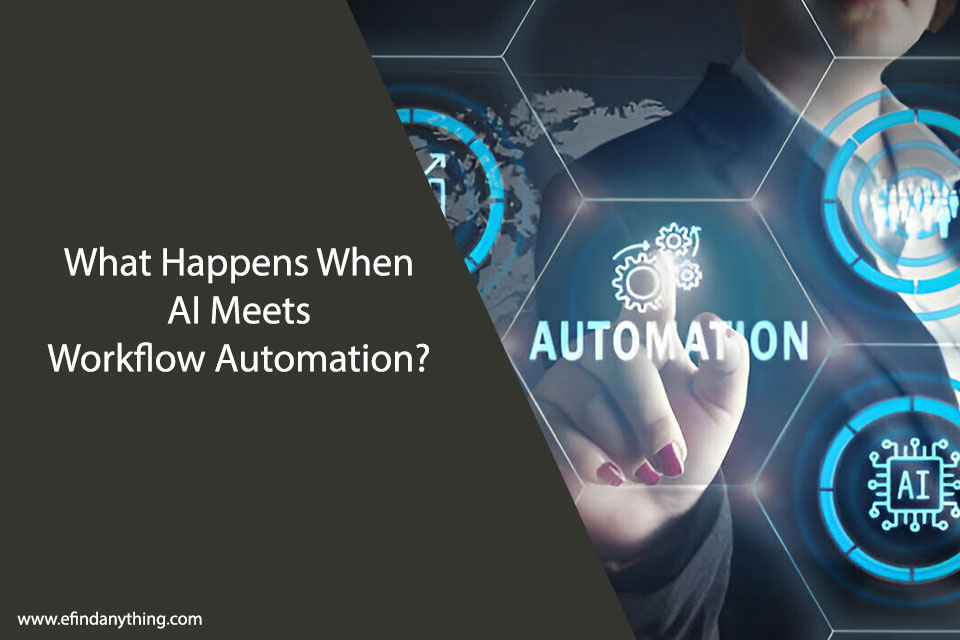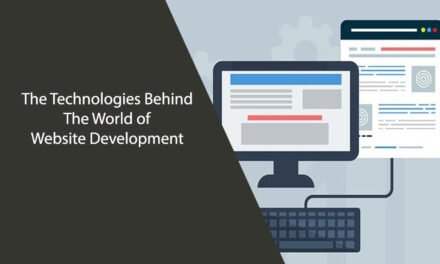The rise of AI workflow automation is revolutionizing how businesses operate. Organizations that once relied on manual, time-consuming processes are now embracing artificial intelligence to streamline workflows, eliminate inefficiencies, and improve decision-making. AI is no longer just a futuristic concept—it’s actively transforming industries, from finance to healthcare and beyond.
Platforms like Cflow are at the forefront of this transformation, integrating AI-powered capabilities to optimize business workflows. With AI-driven automation, companies can reduce human errors, enhance productivity, and ensure seamless workflow execution. But what really happens when AI meets workflow automation? Let’s dive deeper into this game-changing innovation.

Table of Contents
How AI Enhances Workflow Automation
Traditional workflow automation has always focused on optimizing repetitive tasks, but with AI, the scope expands significantly. Instead of simply following predefined rules, AI-powered workflows can analyze data, predict outcomes, and make intelligent decisions without human intervention.
1. Smart Decision-Making
AI-powered automation allows workflows to become more dynamic and responsive. For instance, Cflow leverages machine learning algorithms to analyze past workflow data, identify trends, and suggest improvements. This means businesses no longer have to rely on static workflows—AI continuously refines processes for greater efficiency.
2. Intelligent Data Processing
AI can process vast amounts of structured and unstructured data, extracting key insights that improve workflow efficiency. Whether it’s invoice processing, contract approvals, or customer service requests, AI ensures that data is categorized, validated, and routed to the right stakeholders without delays.
3. Automated Task Prioritization
With AI workflow automation, tasks can be assigned based on priority, workload, and deadlines. AI-driven systems analyze historical data to determine which tasks require immediate attention, ensuring that bottlenecks are eliminated and workflows run smoothly.
Key Benefits of AI-Powered Workflow Automation
1. Increased Efficiency
By eliminating manual interventions, AI-driven workflows drastically reduce processing time. Tasks that previously took hours or even days can now be completed within minutes, boosting overall productivity.
2. Cost Savings
AI-powered automation minimizes labor costs by reducing dependency on human intervention for repetitive tasks. Businesses can reallocate resources to more strategic initiatives, driving greater innovation and growth.
3. Enhanced Accuracy and Compliance
AI eliminates human errors by automating data entry, document verification, and compliance checks. With AI workflow automation, businesses can ensure that regulatory requirements are consistently met, reducing risks and penalties.
4. Improved Customer Experience
AI-powered chatbots, virtual assistants, and automated responses enhance customer interactions. Workflows become more responsive, ensuring quick resolution of customer queries, leading to higher satisfaction rates.
5. Real-Time Analytics and Reporting
AI-driven workflow automation tools like Cflow provide real-time data analytics, allowing businesses to gain valuable insights into their operations. These insights help decision-makers optimize workflows and identify areas for further improvement.
AI Workflow Automation in Action
Let’s look at some real-world applications of AI-driven workflow automation across industries:
1. Finance & Accounting
AI automates invoice approvals, expense tracking, and fraud detection. Machine learning algorithms analyze financial data, flag inconsistencies, and ensure compliance with regulatory requirements.
2. Human Resources
HR departments use AI-driven workflows for candidate screening, interview scheduling, and employee onboarding. AI ensures that the hiring process is faster and more accurate, reducing recruitment timelines.
3. Healthcare
AI automates patient appointment scheduling, medical record management, and insurance claim processing. This reduces administrative burden and allows healthcare professionals to focus on patient care.
4. E-commerce & Retail
AI-powered workflows optimize order processing, inventory management, and customer support. Chatbots and AI-driven assistants handle customer inquiries, providing instant resolutions.
5. IT & Security
AI monitors network traffic, detects potential cybersecurity threats, and automates incident responses. AI-powered workflow automation enhances IT security by proactively identifying and mitigating risks.
How Cflow Enhances AI Workflow Automation
Cflow is a leading AI-powered workflow automation platform that helps businesses optimize their processes effortlessly. Here’s how Cflow enhances workflow automation:
1. AI-Driven Workflow Builder
Cflow’s AI-powered visual workflow builder enables businesses to design, customize, and automate workflows with ease. No coding is required—just drag and drop to create intelligent workflows.
2. Smart Document Processing
With AI-based Optical Character Recognition (OCR), Cflow can extract data from invoices, contracts, and forms, ensuring accurate and efficient document management.
3. Predictive Workflow Analysis
Cflow uses AI-driven analytics to predict workflow bottlenecks and suggest optimizations, ensuring continuous process improvement.
4. Seamless Integrations
Cflow integrates with popular business tools like Slack, Microsoft Teams, and Google Workspace, ensuring smooth workflow automation across various platforms.
Conclusion
The combination of AI and workflow automation is reshaping how businesses operate. With AI workflow automation, companies can move beyond simple task automation and embrace intelligent, self-optimizing workflows. Cflow plays a crucial role in this transformation, offering AI-powered capabilities that drive efficiency, accuracy, and cost savings.
As AI continues to evolve, businesses that adopt AI-driven workflow automation will gain a significant competitive edge. The future of automation is here—are you ready to embrace it?





